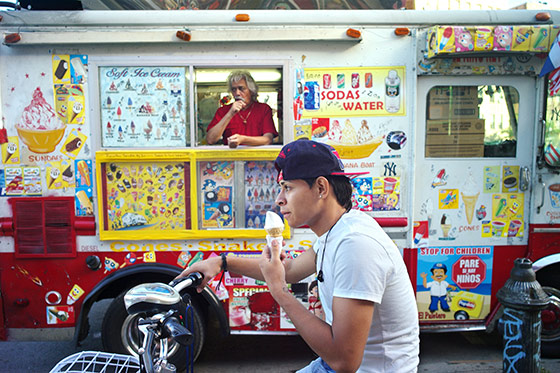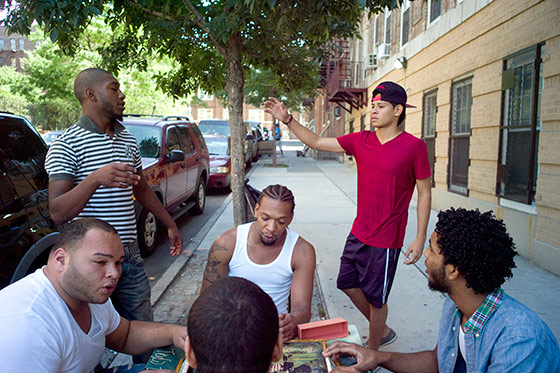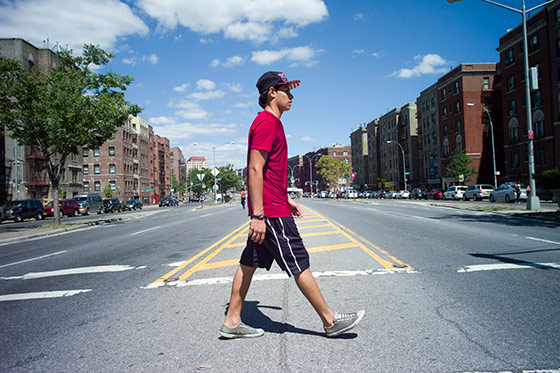 |
Grabbing ice cream.
(Photo: Edward Keating) |
At first, Carlos says, there was a honeymoon period when he moved into Alicia’s apartment. She would spontaneously embrace him and bought him clothes and shoes. When she saw Carlos in the Westchester juvenile facility where he was held for more than a month, his jet-black hair, brown eyes, and broad mouth brought to mind her son, his father.
 |
Carlos greets his friends.
(Photo: Edward Keating) |
But that resemblance also worries Alicia. Carlos’s father lived in the States for a period before he was deported over 20 years ago. (Carlos doesn’t know the cause and doesn’t ask.) When Carlos pierced his tongue, acquired earrings, and occasionally went out with friends at night, Alicia was unnerved. “He wouldn’t say who he was meeting with, the time he was coming back,” she says. If that seems like typical tension between an authority figure and a teenager, it was compounded by the fact that Carlos was beginning to grapple with the enormity of what he had witnessed back home and on his journey coming over. "There was a time I was depressed,” he says. He still has trouble sleeping.
Something that looms over him is his October court date, when his lawyer will try to argue that Carlos qualifies for Special Immigrant Juvenile Status, a precursor to a green-card application. Carlos will need to demonstrate he was abused, abandoned, or neglected by at least one parent. The vanishing act his father pulled when Carlos was a baby may actually end up being his path to becoming a U.S. citizen. But it also evokes Carlos’s scorn. “My father drank,” he says. “My mother showed me the right path.” The way Carlos dismisses his father is another source of conflict with Alicia. “Things aren’t as clear-cut as his mother might have made him think,” she tells me.
 |
Carlos crosses the Grand Concourse on his way to a haircut.
(Photo: Edward Keating) |
Earlier this year, Carlos moved out of his grandmother’s apartment. He lived with some friends and later spent ten days at a shelter for homeless youth in the city. Alicia called him there and said to return, that he had a home with her. Things are better, both of them say. They’re living together again. But recently, the health inspector confiscated Alicia’s stand, so she’s been selling the empanadas on foot. When describing his last few months in New York — his breakup, the ups and downs with Alicia — Carlos gets quiet, thoughtful. His court date is less than two months away. There was a phrase he repeated when he walked for 30 hours straight in southern Mexico: “This is nothing.” Now he has a new way of coping. “I try,” he tells me, “not to remember stuff.”
 Subscribe
Subscribe

 The Age of the Auteur in Streaming TV
The Age of the Auteur in Streaming TV
 The Approval Matrix
The Approval Matrix David Edelstein on This Is Where I Leave You
David Edelstein on This Is Where I Leave You
 A Very Different Kind of Sexual Revolution on Campus
A Very Different Kind of Sexual Revolution on Campus
 Derek Jeter, in Private
Derek Jeter, in Private
